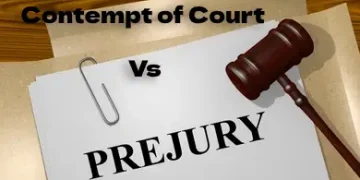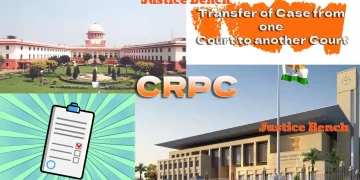This article explores the concept of guardianship in Hindu law by examining case studies to offer insights and comprehension.
- History
- Knowing guardianship under The Hindu Law and judicial precedents
- Lalta Prasad v. Ganga Sahai (1973)
- Githa Hariharan v. Reserve Bank of India (1999)
- Sheila Umesh Tahiliani v. Soli Phirozshaw Shroff And Ors. (1981)
- Paras Ram v. State (1960)
- T. Sivakumar v. Inspector of Police, Thrivallur Town Police Station (2011)
- Gaurav Nagpal v. Sumedha Nagpal (2008)
- Deepti Bhandari v. Nitin Bhandari (2011)
- Sakharam v. Shiv Deorao (1974)
- Conclusion
- References
History
The idea of guardianship has transformed from parental authority to a focus on protection in recent times. The Hindu Minority and Guardianship Act, 1956, serves as a legal framework codifying laws related to minority and guardianship, prioritizing the child’s well-being.
According to Section 4(b) of the Hindu Minority and Guardianship Act, 1956, a “guardian” is defined as an individual responsible for the care of a minor’s person, property, or both, encompassing—
(i) a natural guardian,
(ii) a guardian appointed by the will of the minor’s father or mother,
(iii) a guardian appointed or declared by a court, and
(iv) a person empowered to act as such by or under any enactment relating to any court of wards.”
This article offers an in-depth exploration of the concept of guardianship within Hindu law, utilizing judicial precedents for elucidation.
Knowing guardianship under The Hindu Law and judicial precedents
Section 6 of the Hindu Minority and Guardianship Act, 1956 delineates the specific natural guardians as follows:
- In the case of a legitimate unmarried boy or girl, the sequence is the father, followed by the mother, with the stipulation that a child below the age of 5 shall be under the custody of the mother.
- In the case of an illegitimate boy or girl, the order is the mother, followed by the father.
- For a married woman, her husband is recognized as the natural guardian.
The provision mentioned above includes a proviso that specifies that “no individual shall have the right to serve as the natural guardian of a minor under the provisions of this section—
(a) if he has ceased to be a Hindu, or
(b) if he has completely and finally renounced the world by becoming a hermit (vanaprastha) or an ascetic (yati or sanyasi).”
Sections 7 and 8 of the 1956 Act discuss the natural guardianship of adopted sons and the authorities granted to natural guardians, respectively. Section 9 of the Act specifically outlines the provision for testamentary guardians (those appointed by will) and specifies their powers. The significance of Section 13 has been a subject of ongoing discussion for several years, as it emphasizes that the welfare of minors should be the foremost consideration.
Lalta Prasad v. Ganga Sahai (1973)
Section 6 of the Hindu Minority and Guardianship Act, 1956 designates the “father” as the natural guardian of his minor legitimate children. Additionally, Section 19 of the Guardians and Wards Act, 1890 asserts that a father can only be deprived of the natural guardianship of his minor children if found unfit for such responsibility. A notable case, Lalta Prasad v. Ganga Sahai (1973), brought before the Rajasthan High Court, involved a revision application by the father of two minor boys aged above five years. The application contested an order by the District Judge, Jaipur City, Jaipur, appointing their grandfather as their interim guardian under Section 12 of the Guardians and Wards Act, 1890.
The petitioner argued that the District Judge lacked jurisdiction to appoint the grandfather as the interim guardian based on Section 19(b) of the Act. The High Court emphasized the need to interpret Sections 19 of the Guardians and Wards Act, 1890, and Section 13 of the Hindu Minority and Guardianship Act, 1956 in conjunction. Section 2 of the Hindu Minority and Guardianship Act, 1956 highlights that the Act of 1956 is intended to supplement the Act of 1890.
Considering the strict prohibition in Clause (b) of Section 19 of the Guardians and Wards Act, 1890, the High Court concluded that the stringency of the prohibition in Clause (b) of Section 13 of the Hindu Minority and Guardianship Act, 1956 should be relaxed to a significant extent in the best interest of the minor’s welfare. The Hon’ble High Court, based on this reasoning, held that the paramount consideration should be the welfare of the minor children. Consequently, the father’s right of guardianship was deemed subordinate to the well-being of the children.
Githa Hariharan v. Reserve Bank of India (1999)
In the pivotal case of Githa Hariharan v. Reserve Bank of India (1999), the Supreme Court of India deliberated on the validity of Section 6 of the Hindu Minority and Guardianship Act of 1956, which the petitioner contested on the grounds that the inherent right to the dignity of women, as guaranteed by the Constitution, was contradicted by Section 6 of the 1956 Act. The case involved a custody dispute over the petitioner’s minor son, born out of the legal marriage between the petitioner and the first respondent. Importantly, a divorce case was already in progress in the Delhi District Court, where the first respondent sought custody of their minor son.
The petitioner, in turn, had filed a request for support for herself and her young son. Ms. Indira Jaisingh, providing testimony in support of the petitioner, argued that Section 6 of the Act unfairly disadvantaged women and exhibited discrimination against them regarding guardianship rights, responsibilities, and control over their children.
The Supreme Court interpreted that the term ‘after’ in Section 6 should be construed in a manner that aligns with the welfare of the minor, considering the case’s requirements. Additionally, the Court acknowledged a preference for upholding legislation rather than declaring it void. The term ‘after’ was understood not strictly as post the father’s death, but rather indicating an intention to convey ‘in the absence of’—whether temporarily or otherwise—an absolute lack of interest on the part of the father toward the child, or even the father’s inability due to illness or other factors.
Sheila Umesh Tahiliani v. Soli Phirozshaw Shroff And Ors. (1981)
The Bombay High Court, in the case of Sheila Umesh Tahiliani v. Soli Phirozshaw Shroff And Ors. (1981), considered the extent of a mother’s guardianship rights under the Hindu Minority and Guardianship Act, 1956. The petitioner had filed a petition seeking custody of her minor son, Malcolm, under the Guardians and Wards Act of 1890. The petitioner, formerly a Zoroastrian, had married Kersi Soli Shroff following the rites and doctrines of the Zoroastrian religion. Unfortunately, Kersi Shroff passed away on April 18, 1979, in Bombay, under distressing circumstances. The petitioner gave birth to a son on March 13, 1979, about a month before Kersi’s demise, and the custody of the child became the subject of dispute in this case.
The Hon’ble High Court noted that a mother’s right of guardianship persists even after her conversion to another religion, as long as she can provide a nurturing and happy home for her child.
Paras Ram v. State (1960)
The Allahabad High Court concluded the matter of guardianship by affinity in a reasoned manner in the case of Paras Ram v. State (1960). In this instance, the father-in-law of a minor widow forcibly removed her from her maternal home and arranged her marriage, involving financial transactions, to an individual against the widow’s wishes. The pivotal question before the Hon’ble High Court was whether the actions of the father-in-law in this particular case could be deemed as culpable. The Court determined that the father-in-law could not be held criminally responsible as he was the legal guardian of the minor widow.
It’s noteworthy that changes in the law have been brought about by the Act of 2006 (Child Marriage Prohibition Act) and the decision rendered in the case of T. Sivakumar v. Inspector of Police, Thrivallur Town Police Station (2011).
T. Sivakumar v. Inspector of Police, Thrivallur Town Police Station (2011)
The Madras High Court strongly contested the provision of the law that designates husbands as guardians of their minor wives in the 2011 case of T. Sivakumar v. Inspector of Police, Thrivallur Town Police Station. The case presented two significant issues before the Hon’ble High Court:
- Whether a marriage contracted by an individual with a female under the age of 18 could be deemed a valid marriage, and whether custody of the girl should be granted to the husband if he is not in custody.
- Whether a minor can be considered to have reached the age of discretion, allowing her to walk away from the lawful guardianship of her parents and refuse to be in their custody.
In addressing these issues and awarding custody to the minor girl, the Court emphasized that it would prioritize the girl’s paramount welfare, including her safety, over the legal rights of the person seeking custody. This decision, however, would not prejudice the parties’ ability to pursue appropriate relief in civil court. The Court further asserted that a law should not be interpreted in a manner that renders it redundant or unworkable, defeating the very purpose of the relevant Act. Therefore, an adult man who marries a female child, thereby violating the Prohibition of Child Marriage Act, should not be recognized as the natural guardian of the girl child.
Gaurav Nagpal v. Sumedha Nagpal (2008)
The Supreme Court of India, in the case of Gaurav Nagpal v. Sumedha Nagpal (2009), underscored the significance of a minor’s ethical and moral well-being under the Hindu Minority and Guardianship Act, 1956. In this case, the couple had married on October 14, 1996, and their first child was born on November 15, 1997. According to the Appellant, the Respondent abandoned the child on 8.8.1999, and a Habeas Corpus petition was filed by her with the Delhi High Court on 25.8.1999, which was dismissed due to a lack of territorial jurisdiction. In response, the Respondent filed a Special Leave Petition and a Writ Petition under Article 32 of the Constitution of India, 1950, challenging the High Court’s order dated 14.1.2000. The Supreme Court granted interim custody of the 20-month-old child to the Appellant. Subsequently, a contempt petition was filed by the respondent for the alleged violation of terms by the Appellant. The Supreme Court made the following key observations:
- The paramount consideration for the court is the well-being of the child, which should not be narrowly confined to financial or physical comfort. The term “welfare” encompasses a broad interpretation, taking into account the moral, religious, and physical well-being of the child, and emotional bonds should not be disregarded.
- In child custody cases using habeas corpus, the primary purpose is not solely to test the legality of confinement or restraint, but rather to provide a means for the court to exercise its judicial discretion in determining what is in the best interest of the child’s welfare.
- When assessing the welfare of the minor, the court should consider factors such as the age, sex, and religion of the minor; the character and capacity of the proposed guardian; the proximity of kin to the minor; any wishes expressed by a deceased parent; and the existing or previous relations of the proposed guardian with the minor or their property.
Deepti Bhandari v. Nitin Bhandari (2011)
In the case of Deepti Bhandari v. Nitin Bhandari (2011), the Supreme Court of India addressed the matter of parental visitation rights. Acknowledging the challenges faced by the Respondent and his family members, the Apex Court noted that visitation rights should be organized with consideration for the convenience of the child’s parents. Therefore, the Court emphasized that the decision on visitation rights should ideally be made by the parents themselves, and unnecessary court interference was only adding complexity to the issue.
Sakharam v. Shiv Deorao (1974)
The matter before the Bombay High Court in the case of Sakharam v. Shiv Deorao (1974) pertained to the authority of the natural guardian over the minor’s property. Noting that a guardian is obligated to perform actions necessary for the minor’s interests and proper benefit, the Court emphasized that the broad nature of this authority excludes engaging in fraudulent, speculative, and unnecessary transactions. Considering the expansive powers granted to the guardian under Section 8, the Court affirmed that these powers are intended to empower the guardian to act prudently for the welfare of the concerned minor. Furthermore, the Court clarified that Section 8 of the Hindu Minority and Guardianship Act, 1956 does not impose any restrictions on the Karta’s authority to alienate the minor coparcener’s interest in the joint family property when such power is rightfully exercised.
Conclusion
Guardianship is a significant aspect within Hindu law, and the legislation formulated for this matter aims to ensure the specific and appropriate well-being of minors. The cases examined in this article predominantly reflect a concern for the welfare of minors, as outlined in Section 13 of the Hindu Minority and Guardianship Act, 1956. While the cases discussed here are not exhaustive, they do encompass key instances in this realm.

















